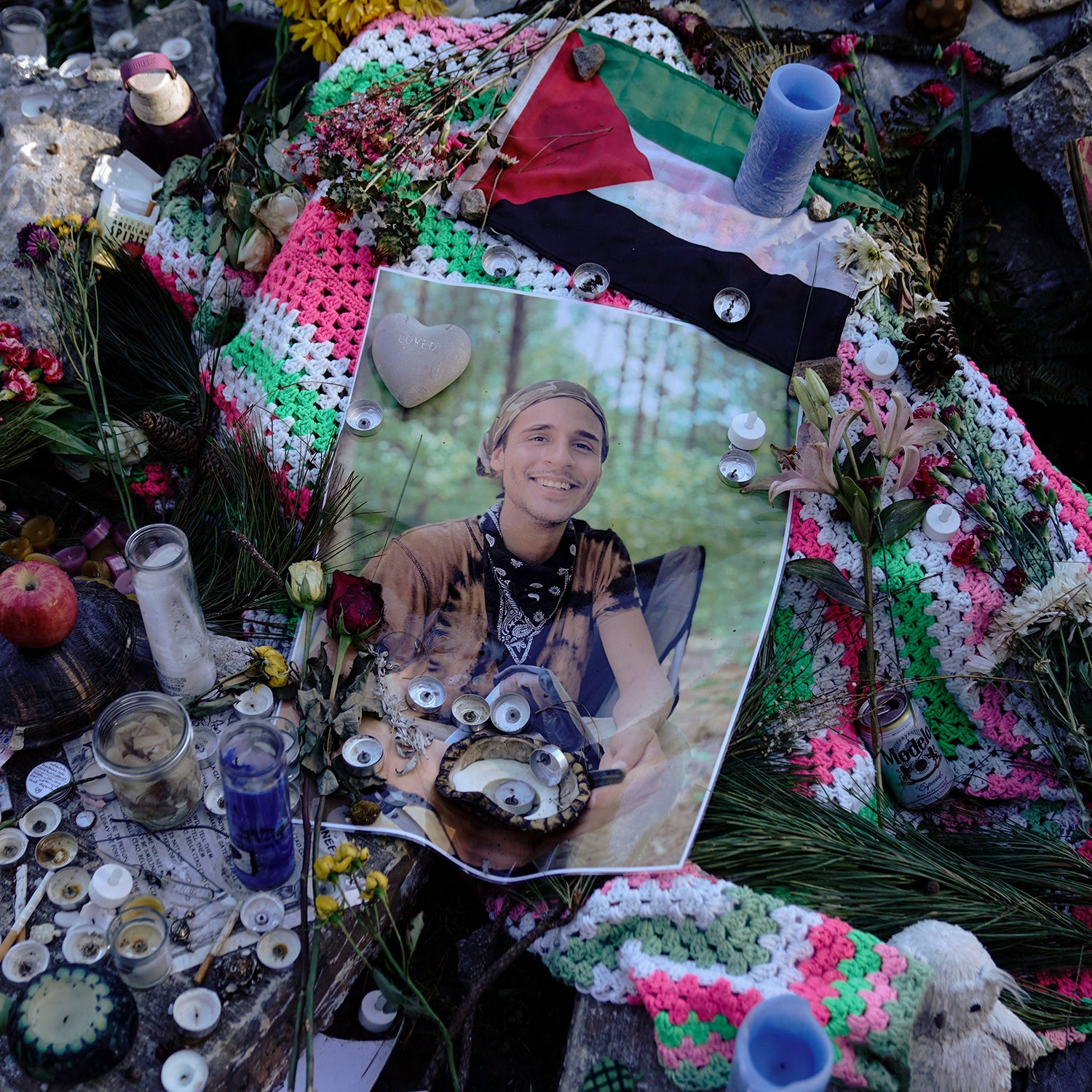Twenty minutes from downtown Atlanta sits the South River Forest, known as one of the city’s “four lungs.” Like similar green spaces in and around the neighborhoods of Buckhead, Cascade Heights, and Druid Hills, its vast tree canopy inhales carbon dioxide and exhales oxygen. For most of the 20th century, 300 acres of this land was a prison farm. Before that it was a slave plantation, and before that a home to the Muscogee people, who were violently forced out of what they call the Weelaunee Forest in the early 1800s. Since the 1990s, the abandoned woods and surrounding waterways have been treated as a dumping ground by local businesses and residents, leaving nearby, predominantly Black and lower-income neighborhoods to deal with the literal downstream effects. Yet its trees go on filtering rainwater, purifying the air, and counteracting the urban heat-island effect—in which paved surfaces trap solar energy and drive up ambient temperatures—breathing life into the metropolitan area by simply existing.
It was here that Manuel Paez Terán (who went by the name Tortuguita) took their last breath after law enforcement shot them at least 57 times during a multiagency raid on January 18. The 26-year-old was one of dozens of activists protesting the construction of a sprawling, $90 million training center for police and firefighters on 85 acres of the South River Forest. The project was spearheaded by the Atlanta Police Foundation. Approved by the Atlanta City Council in 2021, the campus—which opponents call Cop City—would include a shooting range, a driving course for practicing high-speed chases, and a mock village to rehearse raids. With Atlanta still reeling from the police killing of Rayshard Brooks in 2020, activists saw Cop City as a repudiation of protesters’ calls for racial justice and police accountability.
Questions linger about the circumstances of Terán’s death. The Georgia Bureau of Investigation says that officers fired in self-defense after Terán shot a state trooper, who was seriously wounded. Authorities also allege that a handgun recovered from the scene belonged to Terán. But activists believe that the officer may have been struck by friendly fire. The state claims that there is no body-camera footage of the shooting itself, but in a video captured just after the incident, an Atlanta police officer is heard saying, “You fucked your own officer up.” He later approaches two other officers and asks, “They shoot their own man?” An autopsy by the DeKalb County medical examiner did not find gunshot residue on Terán’s hands, but further testing by state investigators revealed more than five “particles characteristic of gunshot primer residue.” The report also stated, “It is possible for victims of gunshot wounds, both self-inflicted and non-self-inflicted, to have [gunshot residue] present on their hands.”
In a statement, attorneys for Terán’s family referred to the test results as “inconclusive.” An earlier autopsy commissioned by the attorneys concluded that at the time Terán was shot, they were sitting cross-legged, with their hands in the air.
“There has always been a risk of violence in environmental activism,” says Keith Woodhouse, a history professor at Northwestern University. “But this is the first time ever, in the history of the United States, that there has been an environmental activist killed by law enforcement.”
The public may never know the truth about what happened to Terán. What’s clear is that they were an advocate for passive resistance. In an interview with reporter David Peisner last December, Terán said, “We’re not going to beat them at violence. They’re very, very good at violence. We’re not. We win through nonviolence.” After graduating magna cum laude from Florida State University, Terán became active in the organization Food Not Bombs, helping feed homeless people in Tallahassee. They were growing their hair long to donate to children with cancer, their brother Daniel Esteban Paez told the Associated Press. According to the DeKalb County medical examiner’s report, Terán’s black curls, pulled back in a ponytail, measured 12 inches in length.
The decentralized “Stop Cop City” movement has not been entirely peaceful. Demonstrators have thrown Molotov cocktails at police and torched construction vehicles. Georgia has charged dozens with domestic terrorism, a move that human rights groups have criticized as excessive and politically motivated. In a statement in March, the American Civil Liberties Union speculated that the state had leveled such extreme accusations because the protest “challenges the increasing militarization of the police.”
In October, the Georgia Bureau of Investigations announced the officers who shot Terán will not be charged.
Terán died rejecting the idea that training neighborhood cops to fight protesters like insurgents would increase public safety. Their spirit lives on , “¡Viva, viva Tortuguita! ¡Viva, viva Tortuguita!”


